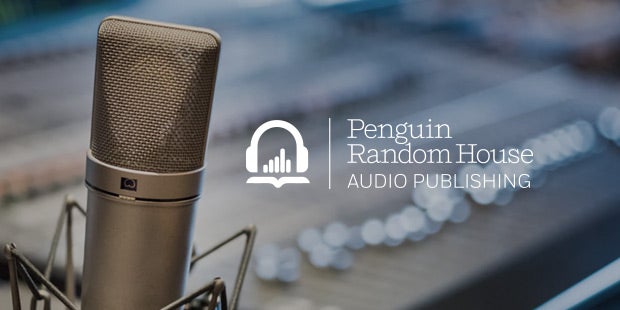As digital audio consumption continues to grow, the team creating our audiobooks continues to adapt. We sat down with Amanda D’Acierno, president and publisher of Penguin Random House Audio Group, to learn more about the inner workings of PRH Audio and the audiobook industry as a whole.
Can you talk about the rise of audiobooks in the last few years, including what may have contributed to that growth and how you have sustained it?
The increasing number of titles available on audio has had a key impact on the format’s growth. Listeners can find nearly any title they’re looking for on audio now. In 2018, Penguin Random House Audio alone published more than 1,400 audio titles, and we’re committed to recording every Penguin Random House title that is appropriate for the format and for which we own the rights. We’ve expanded our staff, built additional studios in our offices in New York and L.A., and dedicated more resources to promoting the audiobook format and our titles.
Production values and consumer expectations have risen accordingly as well, and news-making recordings like Michelle Obama’s Becoming, George Saunders’s Lincoln in the Bardo, and Michael Diamond and Adam Horovitz’s Beastie Boys Book help keep audiobooks in the cultural conversation. Media coverage for audiobooks continues to expand as well—The New York Times introduced audio bestseller lists a year ago, and The Washington Post, San Francisco Chronicle, and New York magazine’s Vulture have all ramped up regular audio coverage recently.
The retail landscape is diversifying as well: Google’s Play store introduced audiobooks just over a year ago, and Apple Books relaunched their audiobook store in December.
How do our audiobook, print, and ebook teams work in tandem to get our books to readers in the format they prefer?
We collaborate closely with the entire publication team to promote authors’ books to readers in all formats, from acquisition to launch and beyond. We coordinate on strategy, share resources for social media assets and book trailers, execute complementary marketing campaigns and title merchandising, place audio excerpts alongside author interviews and serials, and reach out to our lists of audio reviewers and media contacts to supplement outreach for the print editions.
Are there any specific genres where the audiobook sells particularly well?
Speaking broadly, bestselling books do well across formats—Educated by Tara Westover was a top book of 2018 in both print and audio, for example. Memoir and humor, often read by the author, have long been particularly popular on audio, as have science fiction, fantasy, and business titles. Self-development (like Charles Duhigg’s The Power of Habit) and “big idea” books (like Michael Pollan’s How to Change Your Mind) also resonate with audiobook listeners.
Does the work of the audio team vary depending on a book’s genre?
We don’t have a cookie-cutter process for casting and production. For each book, the audio producer has a conversation with the author about the best approach, whether that’s scheduling time for the author to record, casting a single actor or multiple narrators, discussing any necessary adaptations for the recording, or sending sample clips of voices they think would be a great match for the book.
Where do you see audiobooks going in the future?
Looking ahead, I think Spanish-language audio is a growth area. We’ve partnered with Penguin Random House Grupo Editorial to produce several titles in Spanish for distribution in the United States and Canada, and abroad, in 2019, including George R. R. Martin’s bestselling A Song of Ice and Fire series. While kids’ audio is still a small share of the market, it’s also an opportunity area. Children’s librarians and educators have supported audio for years, but millennial parents are a prime audience, as many of them grew up listening to audiobooks and podcasts themselves.
What is one thing you’d like authors to take away from the audiobook publishing process?
We’re excited to be working more closely with so many authors to promote their audiobooks—and we’d encourage all authors to include information about the audio editions of their books on their websites and social media platforms, and to mention all formats when they talk about their books.
Neda Dallal is Associate, Publishing Development and Author Platforms at Penguin Random House.


